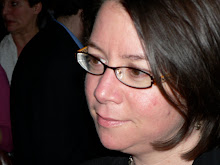In the first several days that Dad was in Seattle he and I had an extraordinary run of medical activities: we saw five different oncologists in three different hospital systems to consider a range of cancer therapies, scheduled a feeding tube insertion, scheduled an evaluation for an esophageal stent (which he did not get), obtained and administered new medications, and went to urgent care multiple times. And it continued from there. Early on, Dad and I did this together, but as he got sicker, it was mostly me. (Less often but crucially, Dale or Jes was in charge.) Over the ensuing weeks, every time we interacted with new medical personnel, someone had to explain exactly what was going on with Dad and what we were there for, then keep track of whatever information, recommendations, and prescriptions were generated by the visit. At home, there were medications and symptoms to track, so that we could report to his other caregivers. (Below is a picture of the whiteboard we used early on.) We were always trying out new things to make him more comfortable, like a heating pad, and a light switch he could operate easily even when he was very weak and confused, and a call button.

I’m saying these things in a long list because there were a lot of them, but in many cases just one of these things was quite taxing in and of itself. For example, the first time Dad was in the hospital, we were approached by a social worker who informed us that Dad now qualified for palliative care, meaning that nurses would come to our home instead of his having to schlep in for doctor visits. We gladly accepted, because his mobility was getting more limited. However, nothing happened after that. I didn’t know how to reach the person that had spoken with me at the hospital, so I did a bunch of online research and calls to customer service trying to figure out how to reach her, remembering only her first name and her general role. The situation was complicated by the fact that Group Health’s relationship with the hospital Dad was in was brand new (they used to partner with Virginia Mason, but had moved to Swedish just ten days before), so no one knew the systems yet. I finally got that person’s number and left a message - on Friday, and again on Monday - but she did not return my call. I made more calls to get the number for the palliative care office (not a number that is readily shared); when I eventually reached them, they told me that we would need a referral. They said the discharge papers from the hospital should have included that referral. I found our discharge papers, but there was no referral there. So I contacted Dad’s primary care provider and asked him to make the referral. He did so; palliative care called me back right away, and made the first home appointment. Whew. Almost everything required this kind of negotiation.
Dad felt lost a lot – disoriented in Seattle, because we were always driving around to some new place, and also confused by the complexity and uncertainty of his medical situation. He felt bad about being such an imposition on us, especially me; but he also trusted us completely, and recognized that he couldn’t do this on his own. Fortunately, I turned out to be an extremely good case manager, if I do say so myself. I learned everything, kept track of everything, and followed up on everything. I helped Dad negotiate difficult decisions. I knew what he needed and made sure his ever-changing lineup of medical personnel and administrators knew what he needed. I created systems to make his care more consistent and easier to coordinate among the different parties involved, like medication spreadsheets. Medical bureaucracy is very frustrating and I was relentlessly pleasant (thank you Sheryl Sandberg), except when I cried, hopefully at strategic moments in the negotiation.
When I’m dying, I want my help. :) Everybody got that?
It was a lot of work. But in our day and age, when medicine is a mosaic of specialties coordinated by a large business, this is a big part of what it means to take care of someone.
It was a lot of work. But in our day and age, when medicine is a mosaic of specialties coordinated by a large business, this is a big part of what it means to take care of someone.

No comments:
Post a Comment